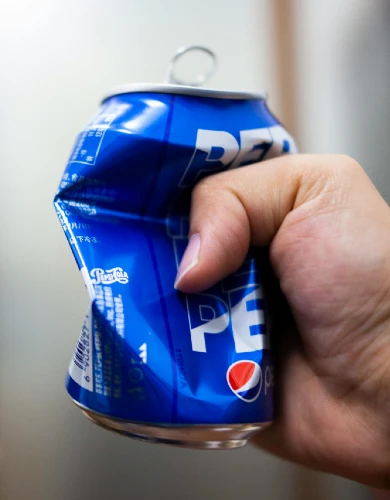How to dispose of waste cooking oil
Waste cooking oil is an unavoidable by product for any business operating a kitchen.
Regulations prohibit simply disposing of oil down the drains, but alternative disposal methods can cause other problems.
Our experts have prepared this complete guide to managing cooking oil waste. Here’s what we cover:
- What is classed as waste cooking oil?
- The issues with disposing of used cooking oil
- How to manage commercial waste cooking oil
- How is waste cooking oil recycled?
- Environmental impacts of waste cooking oils
What is classed as waste cooking oil?
In the UK, waste cooking oil is classified as vegetable oils and fats used in cooking or food preparation. Regular “cooking oil” becomes “waste cooking oil” when it deteriorates to a point where it is no longer suitable for its intended culinary use.
This occurs when the oil undergoes significant changes in its chemical composition, typically marked by increased acidity, off-flavours, off-odours, or excessive smoke or foam formation during heating. It also includes oils contaminated with moisture, food particles, sauces, soaps, detergents, other oils and fats, and other contaminants.
These oils must be disposed of or recycled appropriately to comply with environmental and waste regulations.
Waste cooking oil vs Used Cooking Oil (UCO)
Waste cooking oil and Used Cooking Oil (UCO) are terms often used interchangeably but have slightly different definitions.
While “waste cooking oil” refers to any discarded cooking oils, including fats, UCO specifically refers to waste oil that meets certain purity standards (i.e., low moisture levels, contaminants, and free fatty acids).
UCO can be directly used in biodiesel manufacturing, and producers will typically pay you if you produce it in large enough volumes.
The issues with disposing of used cooking oil
Small businesses in the UK often find managing and disposing of used cooking oil problematic.
Here are the top reasons for difficulties with managing used cooking oil:
Storage and handling
Used cooking oils must be stored properly to prevent spills, which are difficult to clean and can attract pests.
This requires space and suitable containers, which can present additional expenses and logistical challenges for restaurants.
Visit our guide to restaurant waste management plans for practical advice on storing used cooking oil.
Contamination of oil
Used cooking oil often becomes contaminated with food particles, complicating the recycling process.
Contamination requires additional filtering and processing steps before the oil can be reused or transformed into products like biodiesel, increasing the complexity and cost of recycling.
Volume and variability
Restaurants generate varying amounts of used cooking oil.
Smaller quantities might not be economically viable for recycling companies to collect, leaving businesses without practical recycling options.
Visit our full guide to restaurant waste collection for information on the recycling services typically available to restaurants.
How to manage commercial waste cooking oil
Our experts present the best practices for managing and disposing of commercial waste cooking oil in a commercial kitchen.
We’ve ordered our advice to follow the waste hierarchy requirements, which prioritises minimising waste generation over recycling solutions.
Waste cooking oil segregation
Any waste cooking oil that can be reasonably separated from other food waste should be segregated and stored in specialised containers.
Segregating waste cooking oil keeps it separate from other commercial food waste, allowing for reuse or recycling.
Reusing cooking oil
In some cases, cooking oil can be filtered and reused several times before it needs to be discarded. Proper filtration techniques ensure that the oil remains safe and effective for cooking.
Reusing cooking oil minimises the volume of your cooking oil waste, helping to reduce overall commercial waste collection costs.
Hygienic storage
Businesses should store waste cooking oil in designated, sealed containers to prevent leaks, spills, and odours. These bins must be:
- Solid and strong (not plastic bags).
- Kept in sound condition (not broken or fractured).
- Stored in a secure but accessible location (kept clean and free of pests).
- Easy to clean and disinfect to ensure it doesn’t become a biohazard.
- Your business should have sufficient storage capacity to meet its needs, with a buffer for unexpected higher volumes.
Explore more waste storage tips on our commercial waste bin page.
Regular collections
UK waste regulations mandate that waste cooking oil must be collected and transported by licensed waste carriers.
Arrange a collection for your business today on our waste cooking oil collection page.
Cooking oil collection providers will issue a waste transfer note for each collection. This must be kept for two years to demonstrate compliance with commercial waste regulations.
Residential vs commercial waste cooking oil
The difference between commercial and residential waste cooking oil lies primarily in the following:
- Waste volumes generated
- Handling and disposal requirements
💡 Commercial waste cooking oil cannot usually be disposed of at household recycling centres. For further information, refer to our guide on what is classed as commercial waste?
Commercial waste cooking oil
Commercial waste oil typically arises in larger quantities from restaurants, caterers, cafes, and food processing facilities, and it must be collected and disposed of by licensed waste carriers.
The exact compliance requirements differ in each home nation, with Scotland, Wales, and Northern Ireland typically being more stringent than England.
Household waste cooking oil
Cooking oil accumulates in smaller amounts in household waste. While it is preferable to dispose of it at local recycling centres or via special collection schemes provided by the council, local services are often limited.
💡Cooking oil and fat shouldn’t be poured down sinks as it can cause blockages. If you cannot access a commercial food waste collection service, place it in a sealed container and dispose of it in the general waste bin.
How is waste cooking oil recycled?
Waste cooking oil can be recycled into multiple products, with the vast majority used to produce biodiesel for the transportation industry.
Here is a summary of all the possible recycling pathways for waste cooking oil and whether they are followed in the UK:
| Recycling Pathway | Description | Done in the UK? |
|---|---|---|
| Cosmetic and Industrial products | Can be a core ingredient to manufacture soaps, cosmetics, and industrial lubricants, replacing virgin oils. | Yes |
| Biodiesel production | Converted into biodiesel through transesterification. Biodiesel can be used as a renewable fuel in diesel engines to replace fossil fuels. | Yes, the majority of UCO is destines for biodiesel production. |
| Energy (Recovery) | Co-generation energy facilities use waste cooking oil as a direct fuel for electricity and heat production. | Yes |
| Animal feed | After proper treatment to ensure safety, waste cooking oil can be incorporated into animal feed as an energy-rich ingredient. | 0% as it's illegal to use UCO in the UK since 2004. |
| Composting | While small amounts of cooking oils will degrade and contribute to a soil amendment, industrial amounts are detrimental to the composting process. | 0%, as it's not feasible at industrial scales |
Unlike commercial glass or metal waste, waste cooking oil cannot be recycled indefinitely due to degradation over multiple cycles. Once the oil has been used for cooking and repurposed in cosmetic or industrial products, it will degrade into a low-quality organic liquid that is only useful for an incinerator.
Any waste cooking oil recycling process contributes to the UK’s circular economy by preventing this valuable resource from ending up as waste in landfills or, worse, causing damage to plumbing, sewers, or the environment due to improper disposal.
Recycling pathways for waste cooking oil
Each recycling pathway begins with the reception of the waste oils where the waste cooking oils undergo a cleaning and filtering pre-treatment to remove impurities such as water, solids, and free fatty acids.
Then, each process follows a different route to produce distinct end products:
Soaps, cosmetics and industrial products
Soap-making: The filtered oil is mixed with sodium hydroxide to form soap and glycerol. The mixture is then moulded, cured, and finished.
Cosmetics and industrial lubricants: The filtered oil is reacted with alcohol and an acid catalyst to produce esters. The esters are purified and blended with other ingredients to create the final products, including:
- Lip balms, moisturisers, hair products.
- Hydraulic fluids, machinery lubricants, or metalworking fluids.
Biodiesel
To convert filtered waste cooking oil into biodiesel, it must undergo a process of transesterification, separation, and purification:
- Transesterification: Mixing the filtered oil waste with an alcohol (usually methanol) and a catalyst (typically sodium hydroxide or potassium hydroxide) to form methyl esters (biodiesel) and glycerol.
- Separation: The mixture is allowed to settle, with the biodiesel floating to the top. It is then separated from the glycerol and other by-products.
- Purification: The resultant biodiesel is purified through washing and drying to remove any residual catalyst, alcohol, and by-products to meet the required quality standards (such as EN14214 in the UK) for certification.
Biofuel is an important additive to regular petrol to reduce the effective carbon emissions of diesel engines.
Used cooking oil is recycled into biodiesel at the following UK facilities:
- Olleco: Located in Liverpool, Olleco operates the UK’s largest biorefinery dedicated solely to processing used cooking oil into biodiesel
- Greenergy: Greenergy operates two biodiesel manufacturing plants on the east coast of England, located in Hull and Newcastle.
Energy recovery
A proportion of waste cooking oils generated in the UK is sent to co-generation power stations, such as the 18-megawatt REG Bio-Power Plant at Whitemoor, near Leeds, which helps stabilise the grid when requested by the national grid.
The used oils are filtered to remove impurities, resulting in bioliquids best suited for combustion with minimal emissions. These bioliquids are used to generate heat and electricity in specialised boilers designed to run optimally on this fuel source.
💡 While this process is essentially ‘waste-to-energy,’ it is typically not categorised as such because the used cooking oils are reprocessed into biofuel (a commodity) before combustion. In contrast, incineration generally burns a large assortment of loosely segregated combustibles.
Can waste cooking oil be composted?
While cooking oils are technically organic and will eventually degrade into a valuable soil amendment, composting them in industrial quantities can disrupt the balance of a compost heap.
Oils can create odours, attract pests, and slow down the composting process by reducing aeration. Small amounts of vegetable oil (like those typically found in food waste) can be composted if mixed well and spread thinly, but it is best to avoid adding cooking oils directly to compost bins.
Environmental impacts of waste cooking oils
Improper disposal of used cooking oil has significant environmental consequences, affecting wildlife, water quality, soil contamination, and infrastructure. Here is a summary of the effects:
Wildlife
Waste cooking oil that is inappropriately stored or illegally dumped can have serious consequences for wildlife.
For animals, it can coat feathers or fur, reducing insulation and buoyancy, which can lead to hypothermia or drowning.
In waterways, waste cooking oil forms a film on the water’s surface, blocking oxygen exchange and harming aquatic life.
Sewer blockages
When cooking oil is poured down drains (a practice that remains a global issue), it can solidify and combine with other sewer waste, forming large blockages known as fatbergs.
Fatbergs are a major issue for the British water industry, causing overflows and costly repairs.
💡 Case study: The 2017 Whitechapel fatberg
A massive fatberg, measuring 250 metres (820 feet) long and weighing over 130 tonnes, was discovered clogging the sewers of Whitechapel, London. It consisted of congealed fat from used cooking oil, combined with wet wipes and other waste materials. Removing it required 24/7 operations for several months and cost about £1 million per month.
Recommended reading: Environmental impacts of commercial waste

